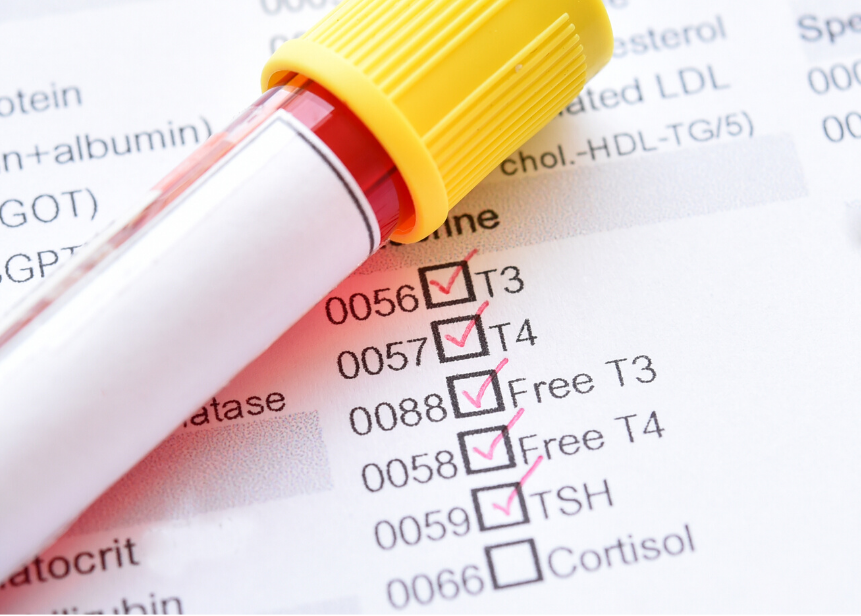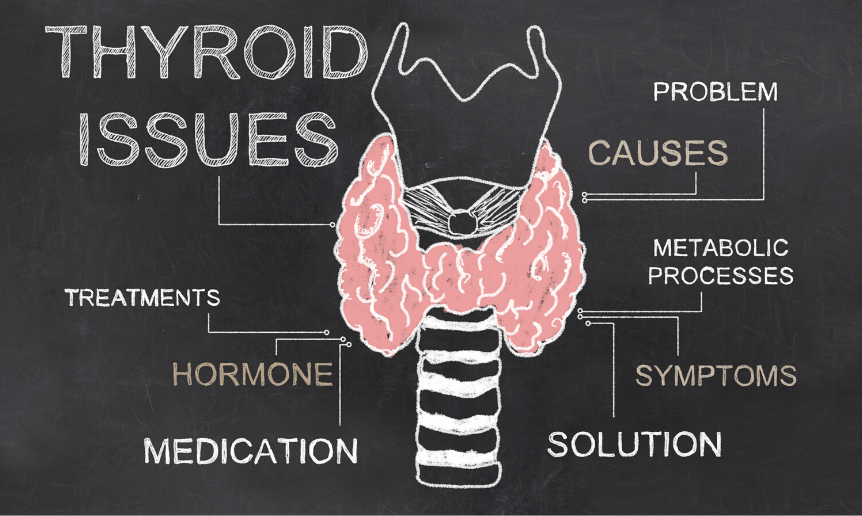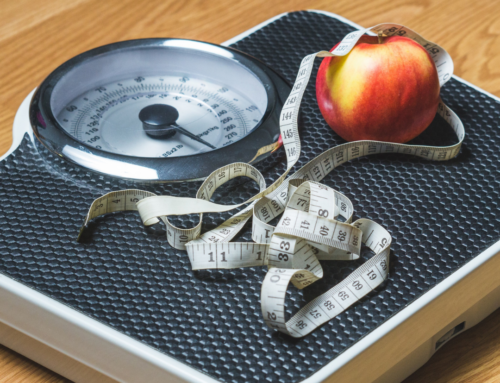The thyroid may be small, but don’t let it fool you—it can do a lot of good, and just as much damage. This butterfly-shaped gland found in the neck sits just under the voice box with two lobes that sit on either side of the windpipe. The thyroid gland produces key hormones triiodothyronine (T3) and thyroxine (T4), which are partially composed of iodine.
If that seems like a lot to remember, don’t worry. Most people just call them the thyroid hormones anyway.

The thyroid can have a huge impact on your overall health from your head to your toes as it’s involved with some pretty important functions, like:
- Regulates the body’s metabolic rate
- Heart and digestive function
- Brain development
- Muscle control
- Mood and bone maintenance
- And more!
Now that you’ve got a quick idea of just how important your thyroid is, let’s get into the specifics. In this post, we’ll cover what the thyroid is, the importance of thyroid health, and signs that your thyroid may be in poor shape.
Thyroid Health 101
Thyroid disease can strike at any age and be devastating for any person dealing with it. There are various types of thyroid disorders (more on that in a second), all of which may have severe consequences on your overall health and well being.
The American Thyroid Association reports 20 million Americans suffer from thyroid disorder with more than half completely unaware that they have a thyroid issue. Because symptoms of thyroid disorders often resemble other medical conditions it’s not uncommon for many patients to be misdiagnosed. In addition, some lab tests may return normal as certain thyroid issues require additional checks and more specific testing for thyroid antibodies.

What Causes Issues With the Thyroid?
Thyroid disease may occur at any stage of life and are generally classified into problems involving the function of the thyroid gland or the structure of the thyroid gland.
- Functional problems of the thyroid may be evaluated by blood tests to see if the thyroid is functioning properly, is overactive, or under active.
- Structural problems may be identified through a thyroid ultrasound.
In addition to the above, it is possible for a thyroid gland to have functional and structural problems at the same time.
What Happens When My Thyroid Isn’t Healthy?
When our thyroid isn’t in a healthy state it means it has become overactive (hyperthyroidism) or under active (hypothyroidism). Let’s take a closer look at each condition individually.
- Hyperthyroidism: This occurs when our bodies produce too much of the thyroid hormones and is most commonly caused by Grave’s disease or an enlarged thyroid gland. When our bodies produce too much of the thyroid hormones it’s called Thyrotoxicosis and it may present itself in many ways, including an intolerance to heat, weight loss, increased appetite, increased bowel movements, irregular menstrual cycle, rapid and irregular heartbeat, palpitations, tiredness, irritability, and more.
- Hypothyroidism: When our bodies don’t produce enough thyroid hormones we have hypothyroidism—this may stem from autoimmune diseases or may even be caused by certain medications. While any person of any age may suffer from hypothyroidism, it’s most common in women aged 60 and older. The most common symptoms of this condition include abnormal weight gain, fatigue, hair loss, intolerance to cold, brain fog, constipation and a slow heart rate.
Both thyroid conditions have different possibilities for treatments ranging from surgery to hormone medications. We’ll get into that shortly. First, we want to highlight some of the most common red flags that your thyroid health may be at risk. Take a look at the list below and if you can identify with one or more symptoms you should have your thyroid checked.
Red Flags Your Thyroid Health May Be Compromised
- Feeling unusually sad or down, generally poor mood
- Feeling “jittery” or anxious
- Loss of interest in sex and lowered libido
- Painful extremities or muscle aches without explanation
- Change in voice to sound more hoarse
- Your neck feels funny or looks different (try this at home neck check)
- Your hair is thinning or falling out
As you can see, many of these symptoms may seem small and can even appear to be just a normal part of the aging process. Because these symptoms can fly under the radar it’s best to have your thyroid checked.
How You Can Get Your Thyroid Healthy Again
Want to keep your thyroid happy? Here are some easy steps to take!
- Get enough iodine in your diet. A daily dose of 150 mcg in your diet is vital for the production of thyroid hormones. While iodine is typically added to table salt you can get enough from other foods, like fish, dairy, eggs, and processed grains—especially important for patients on low-salt diets.
- Supplements. We’ve seen it before—some patients aren’t able to get the proper amount of essential vitamins and minerals to ensure thyroid health. At EVEXIAS, we have various supplements, like Iodine, that may be prescribed to enhance your thyroid health.
- Hormone therapy. Meet with our team of experienced hormone specialists that are well versed in all things thyroid. Our team can determine if hormone replacement therapy is the appropriate fit for your thyroid health.
- Filter your water. A chemical that interferes with the thyroid’s absorption of iodine, Perchlorate, has been found in some tap water. Filter your water for extra security.
Subscribe Today!
Be the first to get latest updates and
exclusive content straight to your email inbox.
We do not spam. You can unsubscribe anytime.






